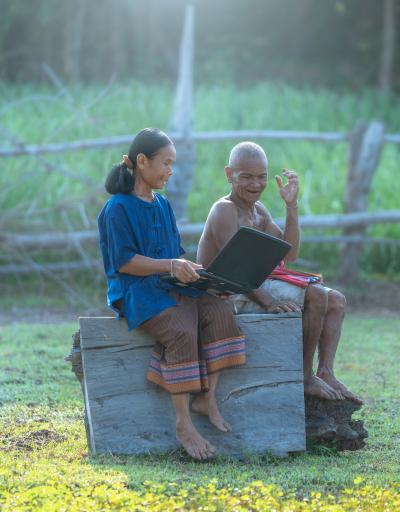
Inclusive learning
Quality learning opportunities must be accessible to all. Reducing inequalities is a prerequisite to guaranteeing the right to a quality education for all, as reflected in SDG 4. Nevertheless, on the whole, access to education favours those who have already benefited from educational opportunity. Those with a deficit in knowledge, skills and competences are the most likely to be excluded.
The UNESCO Institute for Lifelong Learning:
- supports the monitoring of normative and legal frameworks;
- provides technical knowledge and capacity-building support to Member States to enable them to develop, adopt and implement inclusive and gender-responsive policies;
- undertakes practice-oriented research at national and sub-national levels to increase the availability of disaggregated statistics and analysis on intersecting inequalities in lifelong learning;
- produces research and evidence on policies and programmes that support inclusiveness, gender equality and women’s empowerment.
Our focus
The Education 2030 agenda recognizes that gender equality requires an approach that ‘ensures that girls and boys, women and men not only gain access to and complete education cycles, but are empowered equally in and through education’). But despite significant progress in many parts of the world, gender inequality remains a serious challenge for most countries.
In many educational settings, large gender gaps continue to exist with regard to access, achievement and uptake, most often at the expense of girls, although boys are also at a disadvantage in specific regions. Poverty, geographical isolation, minority status, disability, early marriage and pregnancy, gender-based violence, and traditional attitudes regarding the status and role of women are among the many obstacles that prevent women and girls fully exercising their right to participate in, complete and benefit from education.
The UNESCO Institute for Lifelong Learning works towards realizing gender equality in lifelong learning by supporting the development of adequate normative and legal frameworks, policy advice and knowledge production.
Recognizing the risks of social exclusion that digitalization creates for adults with low levels of literacy, while mindful of the potential of technology for meeting their learning needs, UIL promotes digital literacy. We address the needs of low-literate adults and youth through the Global Alliance for Literacy within the Framework of Lifelong Learning (GAL) and associated projects. UIL supports Member States in designing policies and programmes to provide basic numeracy and literacy skills together with other transversal skills and competences, such as digital skills, media literacy skills and global citizenship skills. We help Member States tackle social and gender inequities and enable low-literate youth and adults to gain access to decent jobs or to further learning opportunities.
Refugees, migrants and internally displaced people
The fourth Global Report on Adult Learning and Education (GRALE 4) revealed how refugees, migrants and internally displaced persons are among the least likely to participate in education and training as well as among the most neglected in policy terms. UIL contributes to reversing this neglect through research and work, for example on the recognition, validation and accreditation (RVA) of learning outcomes and competences. Through developing knowledge resources, policy tools and support services, UIL helps host countries to include refugees and migrants in lifelong learning programmes, thus protecting and upholding the rights of people on the move, regardless of status.
The UNESCO Institute for Lifelong Learning (UIL) works to improve existing prison education policies and practices that are designed to support inmates’ rehabilitation and reintegration into society and thus contribute to making the right to education a reality for all.
Ageing societies
Changes in demography, combined with the rapid development of technology, make the need to continue learning throughout life more acute than ever. Ageing societies must find ways to support older adults to adapt to the new technologies that are changing the face of the workplace and the world. We must ensure that older people remain active members of society and contribute to new forms of intergenerational solidarity and learning.






